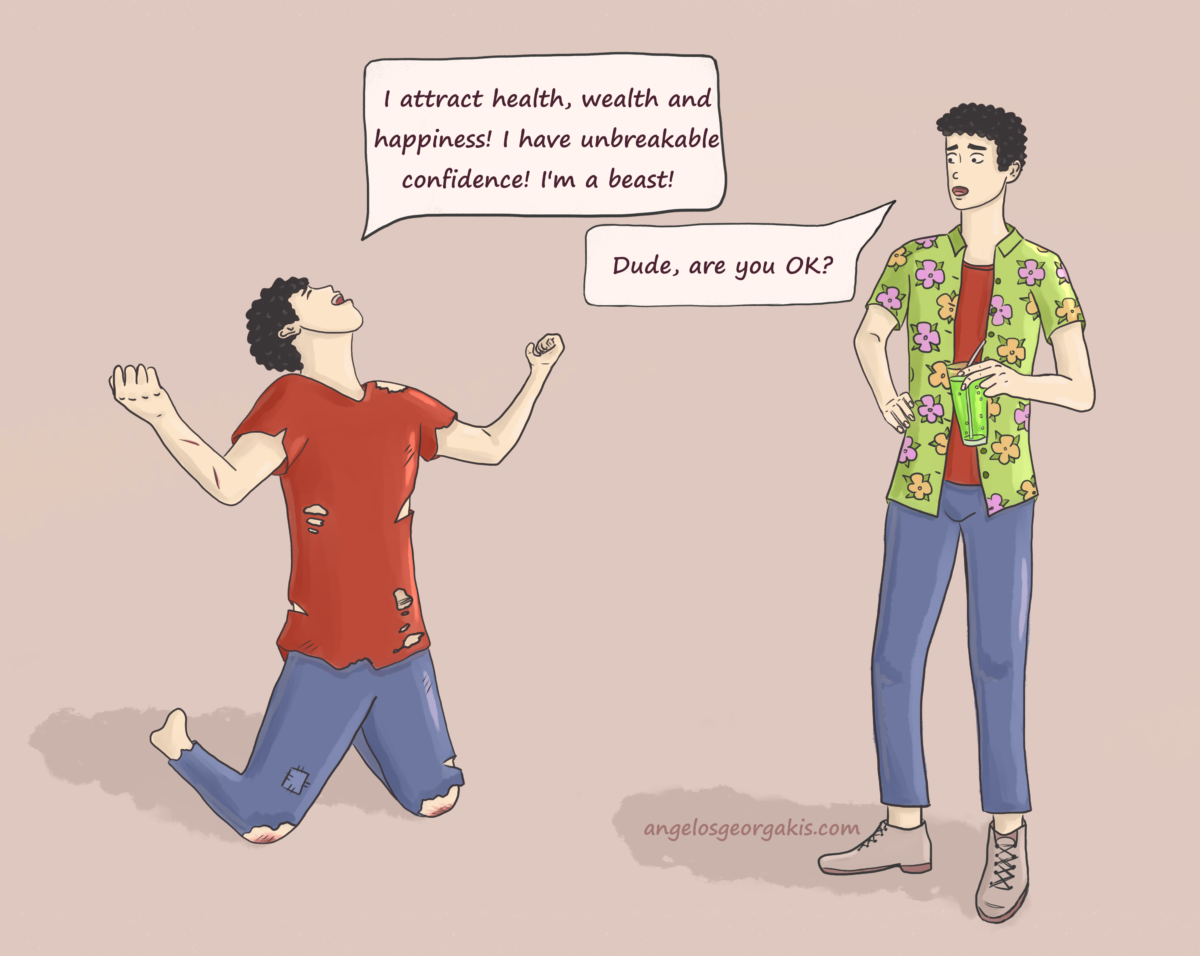This is my complete guide with a whole new and effective approach on how to deal with anxiety.
In this guide, I will NOT ask you to:
- meditate
- do yoga
- go for a walk
- visit the gym
- eat more veggies
- delete your FB account
- sniff jasmine essential oil
- touch crystals
These are all great things we can do to manage our anxiety—but only manage.
None of these things goes deep into the root of anxiety. It’s the same as taking a pain killer. It certainly makes you feel better, but it doesn’t treat the cause of the problem.
I’m not saying “stop meditation” or “eat junk food”. If you’ve found a way to deal with the anxiety symptoms, that’s a good start.
But, if you only eat broccoli and pumpkin seeds to calm your anxiety, and you’re still struggling, please keep reading!
I’ve been there.
There was a time I ran away from work like a kid who runs away from school.
There was a time I didn’t sleep for two weeks.
There was a time I almost had back surgery to alleviate the physical pain created by my anxiety.
A London’s Royal Ballet teacher—we’ll call her Olivia—called me the other day complaining about her severe back pain, “I can’t get off my bed in the morning”.
Olivia’s story matched my own story (which I’ll share with you later) and the story of my other coaching clients I’ve helped with anxiety—all high-performing, successful, hard-working, military-disciplined individuals with a bag of dreams.
Olivia convinced herself that years of training and dancing left her with permanent damage in her back.
She felt frustration, anger, and fear, “Why is this happening to me? I hate this pain! It’s ruined my life”.
Although I’m not a doctor, I suspected that Olivia’s back was fine.
The physical pain she experienced was a manifestation of anxiety, fear, worry, and emotional pain.
My work was to teach Olivia how to dance with her emotions—acknowledge, embrace and learn from her emotions.
When Olivia learned how to work with her emotions, the physical pain went away.
This guide is about dancing—dancing with anxiety.
Because all anxiety wants is to dance with you.
When you relax and enjoy this dance, anxiety stops becoming a problem.
In this guide:
- You’ll learn why all you’ve tried hasn’t worked or hasn’t been as effective.
- You’ll understand anxiety on a deeper level.
- You’ll discover how to transform your relationship with anxiety and see it from a more empowering perspective.
- You’ll find how to get relief from the physical pain you may be experiencing as part of your anxiety.
- You’ll feel confident to go back to living a normal life, dream again, and do the things you’ve always wanted to do.

